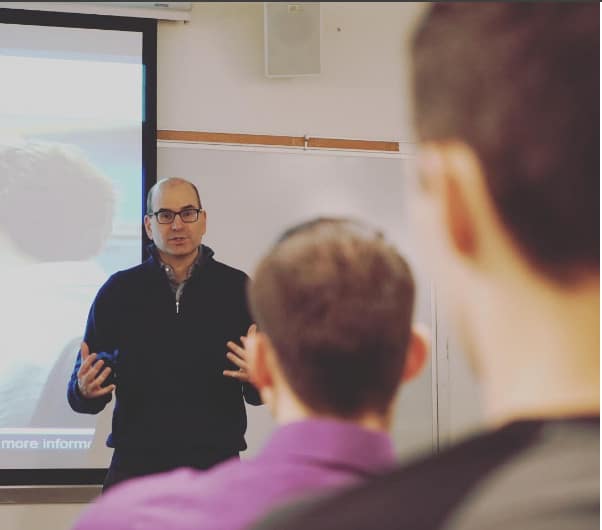
Recently I visited Pace University investment club to talk about the life of a proprietary trader. We make an effort to reach out to college trading clubs and college investment clubs and meet their members. Some of our best traders have come from these clubs. Also, college students rarely get to interact with a professional trader so sharing our experience is helpful.
At my presentation for Pace a sharp member asked, “How do you recommend we get started trading?”
It is a great question. I have written about this extensively in The PlayBook, but let me offer an outline here:
- Read, read, read about markets and trading. New traders need to build their domain knowledge of markets and trading and a great start is to read. Read books. See 20 books every trader should read). Read blogs. See Traders Favorite Trading Blogs. Read magazines. Visit financial websites. See Top Financial websites to prepare for your trading day. Build a foundation of knowledge.
- Train to trade. Take a trader training program to help you get started. Theses course can help you skip some mistakes others have made. They can help you save losing thousands of dollars in the markets when you first start. They can help you build trading skills. They can expose you to trades worth study. See Unconventional Training for the Unconventional Trader.
- Paper trade. Start by paper trading. See The Best Paper Trading Tools to Succeed as a Trader. Experiment with different trading systems with fake money. When you find one that works for you, then and only then, take the next step.
- Trade with real money. Paper trading is very different than trading live. I have seen some of the greatest paper traders ever start at our firm, never to make a dime trading. In fact, the first person we ever hired at SMB, was a superstar on the demo. When he traded live, he lost every day. It got to the point where we thought he was purposely losing money, he was that bad. Start small with small risk and bump your size after only periods of success. Bump your risk only after you have demonstrated clear edge.
- Work with a mentor/coach. We would not expect the next Olympic gymnast to be self-trained. We would not expect the next great NBA star, sans coaches throughout his climb. So is true for the trader. The best coaches make you better. They help you identify and build from your strengths, which makes you distinct. See Get a Trading Coach Already.
- Find a like-minded trading community. On our desk our best traders work in Teams. See Build your trading team. Teams tap into the diverse and unique talents of Team members to make individual traders better.
- Learn to code. Customer filters built with code, help you make more as a trader. Automated models, built in code, can supplement your discretionary trading. Our Junior Traders all build their own filters and models through python. Try this coding class on Python recommended by our Head Quant in NYC.
- Learn to backtest. Backtest trading ideas that you are learning. See if they have edge. Watch Trade like you backtest.
- Intern. In our last two hiring trading classes, each were partially filled with former interns. Find out if you really like trading. Some think they do and find out they don’t. Find out which firms would be a good fit for you, as that relates to culture, trading style, risk and training infrastructure. Apply here for a trading internship.
If you want to get hired as a trader, do not be that candidate who shows up and says,”I really love trading and the markets!” And when you are asked why you say,”I am glued to CNBC and read the Wall Street Journal. ”
That shows an insufficient demonstrable interest in trading and markets. This will not make you appealing to a hiring partner. Speak our language. I wrote about Penny in One Good Trade. His answer? He gave concrete examples of why he loved trading by recent live trades he had made and why. If you can do that, then you will really stand out.
Firms want to make excellent decisions on how to use their resources. Make it easy for them to hire you.
Related posts
Ten Interview Tips for Proprietary Trading
*no relevant positions
